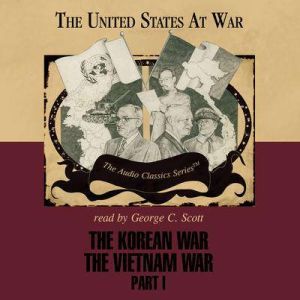Synopsis
After WWII, Korea was divided in half at the 38th parallel. To the north were the Communists; to the south were the United Nations peacekeeping forces. In June 1950, North Korean soldiers backed by Sovietbuilt tanks poured across the parallel. The Korean conflict became on of the first expressions of the Cold War between Russia and America. It was an attempt to balance the power that had been thrown so badly out of alignment by WWII. But Korea would bring victory to neither side. It would merely reaffirm the deadlock. In 1954, the country of Vietnam was also divided in half at the 17th parallel. To the north was the Communist regime of Ho Chi Mihn; to the south was the Americabacked regime of Ngo Dihn Diem. Elections to unify the country were scheduled for 1956, but they were never held. Instead, each side used military means to accomplish political goals. To America, Vietnam symbolized her ability to contain communism in Asia. To the Communists, Vietnam symbolized their ability to defeat America in warfare. It became a struggle to the death between East and West not only between military forces but also between opposing ideologies. Meanwhile, the fabric of Vietnamese society had been torn apart. By 1961, the Cold War was escalating with John F. Kennedy in the White House and Nikita Khrushchev in the Kremlin. Both Sides held nuclear weapons, and they tested each other for weakness. But, by 1964, Kennedy had been assassinated and the Soviets were at odds with communist China. The new American president, Lyndon B. Johnson, found himself trapped in a war without end. His solution was to escalate Americas military commitment in Vietnam. Between November 1963 and July 1965, Johnson transformed Americas limited engagement in Vietnam into an openended commitment. Continuing this strategy, President Richard M. Nixon ordered one of the most criticized events of the war the bombing of Cambodia. American opinion clamored for an end to war, and eventually prevailed. The names of more than 58,000 Americans are inscribed on a black granite monument in Washington, D.C., memorializing those who died in Vietnam.


